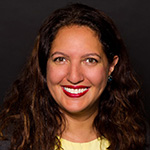Egypt's Ongoing Cultural Struggle
Nov. 4, 2013
By Sarah Eltantawi
When Egypt's judiciary was set to announce the result of Egypt's first civilian presidential election on a warm afternoon in June 2012, I was sitting on a balcony in Berlin glued to online television channels and social media. My primary concern was that the revolution have a chance to continue. After a year of transitional military rule, I felt the revolution would be stillborn if Morsi's opponent, Ahmed Shafiq, Mubarak's former prime minster, won the race. Suspicions of fraud would also have been rife. It would have been Egypt as usual; the revolution, just a momentary upswell of beautiful possibility.
When the judge announced that Morsi had won by 1.3% of the vote, I was arrested by sights of sobbing crowds in Cairo's Tahrir Square, fireworks, and thousands of Egyptian flags waiving in the dry breeze. In that moment, I felt tears come. It was the first free and fair election in Egypt's modern history. As an Egyptian American, it was the latest in a series of moments that began in January 2011 that I hadn't dared to dream of my entire life.
As I watched the scenes of jubilation at Morsi's election, I was surprised to find myself protective of his hard won electoral gain. There is very little about the Muslim Brotherhood's religious or social worldview that appeals to me, especially on questions of gender. But whatever concerns I had were overtaken by the narrative of a formerly oppressed group — which had spent decades in and out of Egypt's jails and torture chambers — having at last the opportunity to come out from behind wara al shams ("behind the sun" — an Egyptian expression for what happens to the disappeared) and claim their place as a proper segment of Egyptian society.
Within an hour of Morsi's win, though, concerns about what a Muslim Brotherhood-lead Egypt meant socially began to flood me. I wrote on Facebook: "Islamic Studies PhDs, sharpen your swords — the moment has arrived." Many people knew what I meant. A generation of young scholars had pursued serious study in Islamics after 9/11 for reasons loosely related to geo-politics — a capacity to confront the growing power of Islamism throughout the Muslim-majority world was certainly one of them. But doubtful comments to my optimism began to flow on my page. An Egyptian literature professor wrote: "As for us, they will make us pack it in." From an Egyptian choreographer came a simple: "This is a black day."
It turns out that the tools needed to confront the Muslim Brotherhood's nascent social conservative agenda would require much more than knowledge of the Islamic tradition. There were early signs that a considered plan for domination of Egypt's institutions was beginning to unfurl, and it thus became clear that by the time scholars and activists could combat the political-theocratic agenda that was sure to follow, it would probably be too late. A case in point was the Morsi regime's absolute insistence on parliamentary elections after the November 2012 constitutional decrees, wherein Morsi declared himself above judicial review and pushed through an unpopular constitution. Egypt was in deep crisis, and many Egyptians thought Morsi's regime had lost basic democratic legitimacy.
The inevitable result of parliamentary elections would have been a majority Islamist parliament to add to the executive, a fact the Muslim Brotherhood knew well because of their far superior elections machinery to any other organized political group in Egypt. At the same moment the Muslim Brotherhood argued for immediate parliamentary elections, the temporary parliament, composed of many Salafi allies were debating lowering the marriage age of young girls to nine years. Typical of their strategy, the Muslim Brotherhood made no statements about this and other such controversial initiatives, but rather kept their talking points to a simple insistence on formal structure for its own sake — knowing full well the unpopular practical results that were sure to follow.
I thus had to learn by observation what I had long been reading about in histories of the U.S. civil rights movement, Native American struggle, and what I learned while at the Hadassah-Brandeis center as a Scholar in Residence in 2013 in the Jewish context: Questions of women and gender can not be subservient to "more important" broader issues, and, someone will always insist they should be. Revolutions are at bottom about culture, and political structures, even ones that come about democratically, do not in and of themselves guarantee liberties — especially for women.
 Sarah Eltantawi is currently a EUME fellow at the Wissenschaftskolleg in Berlin who specializes in political Islam in the contemporary Muslim world. She holds a PhD in the Study of Religion (Islamic Studies) from Harvard University, and in the fall of 2014 will be Assistant Professor of Comparative Religion at Evergreen State College in Olympia, Washington.
Sarah Eltantawi is currently a EUME fellow at the Wissenschaftskolleg in Berlin who specializes in political Islam in the contemporary Muslim world. She holds a PhD in the Study of Religion (Islamic Studies) from Harvard University, and in the fall of 2014 will be Assistant Professor of Comparative Religion at Evergreen State College in Olympia, Washington.
As part of a collaboration between the HBI’s Project on Gender, Culture, Religion and the Law and the School of Law at the School of Oriental and African Studies, supported by the Bridging Voices Program of the British Council, we present a series of invited reflections on the intersection of Gender, Religion and Equality in Public Life from activists and scholars around the world. Contributors have been asked to reflect upon the ways in which conflicts over gender, religion and participation impact their work and inform their understanding of events in the news. They are particularly asked to consider how religious norms around gender shape civil policy making, adjudication and women’s capacity to fully participate in public political and ritual life.